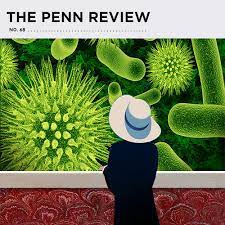
Readers like reading about books and the act of reading. Thus, the occasional bestseller about libraries or rare book collectors or, God save us, the randomly-chosen Top 100 Books We Must Read Before Kicking off into the Milky’s Way (where you’ll be a star, trust me).
A corollary is this: Writers like to write about writers. This provides fodder for reader-writers reading about writers whose works they have read. These truths became self-evident last night while I was reading the new issue of Poetry (May, 2019). Flipping through pages the younger, I found a poem called “Marcus Aurelius” by Bianca Stone.
What? A poem about everyone’s favorite Stoic? Catnip!
Before even diving in, I first conjured memories of rainy afternoons on Martha’s Vineyard, where I read the landlord’s leather-bound copy of The Meditations. Who could lament lost beach weather when Marc was waxing eloquent on life, bringing seeming order to all the turmoil I’d taken existence to be?
Here is Stone’s neat little nod to the student of Epictetus:
Marcus Aurelius
by Bianca Stone
Sometimes I wake up in the night
with a terrible headache, my mouth
blackened; a ghost looking for valuables
in the debris, I turn on a battery-powered
light, clipped to a book, I write things down
in the spirit of Marcus Aurelius
who said the finest bottle of wine
is just grape juice, passing through the liver,
no matter the beauty of a frothing glass,
or a night of big Truth-seeking, never recalled;
the importance of putting something bittersweet
into our mouths, turning it around and around
on our tongues, attaching to it, our missions,
our purpose—in the end
we are all just filters, not even
as beautiful as the plainest bird
or as zen as the meanest deer tick,
nothing is given over to, nothing new is lit.
So often it is this. I wake up, urgent, fatalistic,
with the taste of nectar on my boughs.
I replay on a loop my one stoic consistency,
my middle of the night vow,
that I will start tomorrow
the essential dismantling
of what I live.
We read the philosophers when we are lost and want to be found. Trouble is, reading most philosophers, you will be more lost than when you started. Not so with Marcus Aurelius, and Stone’s poem perfectly captures the mood and self-reflection necessary to savor Stoicism like a secret Epicurean.
The poem’s narrator admits to weakness, and the honesty is both disarming and inviting. Marcus Aurelius, the original self-help section of Roman bookstores? Yes, please! I’ll have some of what she’s having! And maybe look up a few more of the works of Bianca Stone while I’m at it.
If you write but haven’t written about writers, know that there is a built-in audience. I’ve written poems about James Wright, Ivan Turgenev, Leo Tolstoy, Henry David Thoreau, and Jack Gilbert, for instance. And once, when my poem “Hemingway Fishing” appeared in Gray’s Sporting Journal, I received an email from a reader who said it was no trouble tracking me down.
His purpose? To say thanks, is all. For writing about a writer he cared about.








